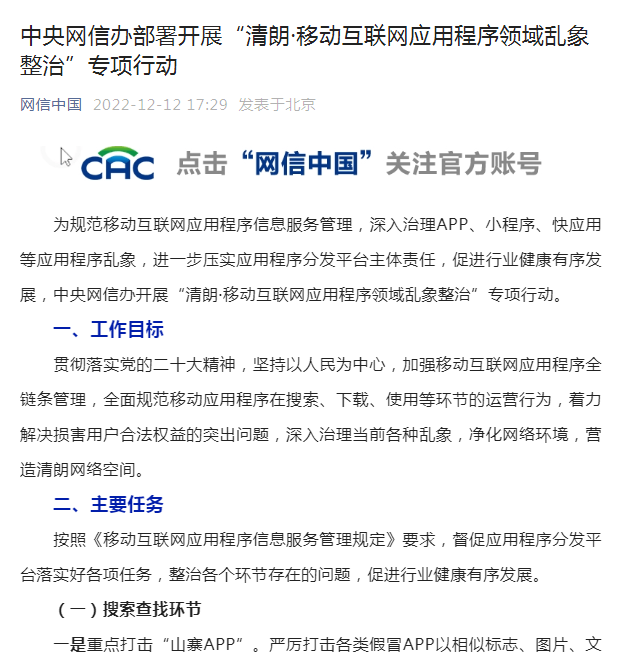语法常识2
2. regardless of,notwithstanding
regardless后面必须有of,notwithstanding后面则不能再接其他介词:
Regardless of danger, he climbed the tower. 他不顾危险爬上该塔。
They insisted on trying, utterly regardless of the possible grave consequences. 他们全然不顾可能产生的严重后果,执意要试一试。
Notwithstanding the long delay, I shall still go abroad for further study. 尽管拖延了很久,我还是要出国深造。
3. for all ones...,with all ones...
for all ones...和with all ones...都作in spite of解,但应注意,for和with都必须跟all ones...才能表示让步的意思。
With all their achievements, they remain modest and prudent. 尽管有成就,他们依然保持谦虚谨慎。
For all his faults, he is still a good friend. 尽管有很多缺点,他仍不失为一位好朋友。
4. 在特殊情况下,through也被用来表示“让步”,如:
On hearing the good news , the girl smiled through (her) tears. 听到那好消息,姑娘破涕为笑了。
九、表示“关于”,“至于”的介词在用法上的区别
表示“关于”,“至于”的介词有with regard to, in regard to, regarding, as regards, concerning, respecting, touching, with reference to, in respect of, in the matter of, as to, as for, about, on等。现说明如下:
1. with regard to, in regard to, regarding, as regards
1 with regard to和in regard to这两词组里的to是介词,不能以of或其他介词换用。
With(或In)regard to writing essays, I should like to have your advice.[注意,在上面例句中,writing不可改作write]
2 regarding后面不能再加上to或其他介词。
Nothing is known regarding her plans for the future.
3 as regards 可看作复合介词,regards 中的结尾“s”不能去掉,as regards前面不能加介词。
At the time I knew very little as regards philosophy. 那时关于哲学的东西我懂得极少。
As regards the matter you brought up, I think it should be settled as speedily as possible. 关于你提出的那个问题,我认为应该尽快解决。
2. concerning, respecting, touching, as regards
concerning,respecting和touching这三个表示“关于”的介词都用于正式文体中:
1 concerning=about;with regard to
They showed anxiety concerning their retired allowance. 关于他们的养老金,他们显得很焦急。
concerning还可和as连用,有两种形式,即as concerning和as concerns都作“关于”解,但意思比concerning(更强调些):
As concerning the subject of my research, I should like to keep a secret for the time being. 关于我研究的课题,我想暂时保密。
As concerns that matter, Id like to add two points. 关于那件事,我想补充两点。[注意,concerns有“s”]
2 respecting=with regard to
A discussion arose respecting the merits of different automobiles. 关于各种汽车的优点引起了一场讨论。
3 touching=concerning;as regards
He asked me many questions touching my home and school life. 他问了我许多关于我的家庭和学校生活的问题。
3. with reference to,with respect to,in respect of,in the matter of
1 with reference to或in reference to意同in connection with,但with reference to比in reference to普通。
I would like to draw some conclusions with(或in)reference to what has been said at the meeting. 我想就大家刚才在会议上所讲的问题得出一些结论来。
With(或 In)reference to editing a school paper, Professor Brown has given us several valuable suggestions.(注意:to是介词,故editing不能改为edit。)
2 with respect to和in respect of均同with reference to或with regard to。
With respect to the Presidents views on the matter, nothing has yet been published in the press. 总统关于此事的观点尚未在报上发表。
His work is good in respect of quality but bad in respect of quantity. 他的工作就质量而论是好的,但就数量来说是差的。
例 The colleges vary so greatly that the problem was finally answered only_____.
A. with respect to a specific college(专科学校)
B. with a view to specific college
C. getting to specific college
D. with a regard to a specific college
[分析]答案为A,with respect to=with regard to。B不合句意,因with a view to不作“关于”解,作“为了……的目的”解。C不合语法。D错,应把with a regard to改为with regard to。
3 in the matter of=concerning,后面通常接具体的东西。
The children have everything they need in the matter of clothes, but few toys. 这些孩子在衣着方面的需要得到了满足,但玩具甚少。
4. as for,as to
1 as for和as to均可作“关于”或“至于”解。
As for the terms, they are too harsh to be acceptable. 就那些条件来说,它们太苛刻了不能令人接受。
You can have a bed, but as for the children, theyll have to sleep on the floor. 你可以睡在床上,至于这些孩子,他们只能睡地板了。
I dont know anything as to the others. 关于其他人的事,我一无所知。
As to that technical problem, I will deal with it in detail later. 至于那个技术问题,我以后再详细讲。
2 as for和as to的不同。
A. as for还经常用来表示轻蔑的意思。
As for Esmond, I never want to see him again. 至于埃斯蒙德,我再也不要见到他了。
I only want you to join in my research; as for others, they dont count. 我只要你参加我的研究工作;至于其他的人,他们并不重要。
B. as to常与表示讯问、争论、疑问等动词连用。
I have no doubts as to your daughters ability. 我对你女儿的能力一点也不怀疑。
We will inquire again as to that matter. 我们将再次了解那件事情。
C. as for后面通常只接名词或动名词;as to后面可接动名词、名词从句或疑问词+不定式构成的短语。
As for going back — that is out of the question.[接动名词]
As to doing that, I havent decided yet.[接动名词]
He asked my advice as to what to do.[接疑问词+不定式]
We made enquiries as to when the next train would be leaving.[接名词从句]
Im terribly uncertain as to whether Eve is the right girl for me.[接名词从句]
5. on,about
在表示“关于”时,on用于有准备的、正式的语言交流,如讲演、讲学、写作等;而about多用来表示非正式谈话或是随便提到:
He spoke on basic economic concepts. 他论述了经济学的基本概念。
He spoke about basic economic concepts. 他谈到有关经济学的基本概念。
例 “Here is an article on disarmament(裁军)。”
“Ive heard many debates_____that issue recently.”
A. at
B. from
C. on
D. for
[分析]答案为C。on能用作“关于”解,含有论述的意思,比about强调;A,B和D中的各介词都不能表示“关于”的意义。
例 “Why is Dr.Jones speaking at the seminar?”
“Because he is an authority_____urban planning.”
A. at
B. from
C. on
D. for
[分析]答案为C。an authority on...系固定搭配,作“……方面的权威”解,on也是表示“关于”的意思,不能以in,of或with代之。
十、表示方法、手段或工具的介词在用法上的区别
表示方法、手段或工具的介词有by,on,in,with,through等,可译作“通过”,“用……”,“以……”,“凭……”,“藉……”,“靠……”,“由于……”,“按照……”等。
1. by
by=by means of或by dint of,表示方法或手段:
Though he has no great abilities, the student gained his scholarship by dint of close application. 虽然无很大才能,该学生却靠刻苦学习获得了奖学金。
We want to settle this by direct negotiation with them. 我们要通过跟他们直接谈判来解决此事。
Multiply the amount by ten and then divide by three. 把该数乘以10,然后除以3。
Judged by ordinary standards, he is quite competent. 按照一般的标准来看,他是很能干的。
By my watch, it is already past ten oclock. 按我的表,已10点过了。
I knew by his appearance that he was not English. 凭他的外表我知道他不是英国人。
例 “How do you know John was angry?”
“I could tell_____his face.”
A. for
B. with
C. to
D. by
[分析]答案为D。by可用来表示方法或手段,这里作“凭……;靠……”解,意同from。
▶▶ by表示方法或手段时,有两个变体,即:
by+交通工具(单数,无冠词)=交通方式
by+通讯工具(单数,无冠词)=通讯方式
• 表示交通方式:
I came back by bus.
Barbara has probably gone off somewhere by boat.
They went there by underground/tube/subway/metro.[by后之四词都表示地铁、underground和tube是英国英语,subway是美国英语,metro指法国及欧洲其他国家城市中的地铁]
Are you going by plane or by train?
The senator(参议员)went to California by helicopter yesterday.
The delegation arrived here by air(乘飞机)at nine sharp(九时整)this morning.
This time he came by land(从陆路来).
They are going to travel by sea(乘船)next month.
• 表示通讯方式:
It will be cheaper to send that package by express(以快递方式).
The store will send your order(订货)by parcel post(以邮包方式).
Ill inform you of our decision by letter(以函件方式).
Nowadays people prefer to communicate with each other by telex(电传方式)in business.
It is much quicker to send a letter by air mail than by sea mail.
The matter is urgent.Please let me know by telegram.
Shall I send it by post(邮寄)or by hand(专人递送)?
The information was delivered by messenger(信使).
We can listen to music broadcast by radio.
从上面众多的例句中可以一眼看出,用by表示交通方式或通讯方式时,by后面的名词必须用单数,且不带任何冠词。如换用on,in表示交通方式,则须在名词前加上不定冠词a(n),如换用on,over,through表示通讯方式,便须加定冠词the。比较:
这里还要作三点补充说明:
A. on/in+不定冠词+交通工具这一模式除表示方式外,还可表示“处于运送状态之中”,而by则不能表示这一含义。
I met Miss Parker on(或in)a bus.[表示“在乘公共汽车途中碰到帕克小姐”这句可以成立]
I met Miss Parker by bus.[表示“以乘公共汽车方式碰到帕克小姐”用得不当,是病句]
B. 要表示交通工具的具体出发时间或到达时间时,by或on后都应接定冠词the:
He will arrive by(或on)the 9:20 train.[乘9时20分的列车到达]
I shall leave by(或on)the 10:40 train.[乘10时40分的列车离开]
C. by表示方法或手段时一些常见的习语:
by all means 务必;一定要
Come and see me by all means this evening. 今晚务必要来见我。
by any means 总之;无论如何
Fanny said that she would by any means make a tour of France. 范妮说她无论如何都要去法国旅游。
by backstairs influence 幕后势力;用不正当的手段
Fergus was elected as a congressman by backstairs influence. 弗格斯通过幕后势力当选为国会议员。
by dint of 由于;凭借
Ellen succeeded by dint of hard work. 埃伦凭借其艰苦努力的工作获得了成功。
by fair means or foul 不择手段;用种种方法
In capitalist countries many businessmen make their fortune by fair means or foul. 在资本主义国家里许多商人不择手段地发财致富。
by fits and starts 断断续续
I have studied English by fits and starts for several years. 我断断续续地学了几年英语。
If you work by fits and starts, you will never achieve much. 做事情一曝十寒是永远不可能取得多大成就的。
An athlete should do his drills regularly, and not by fits and starts. 一个运动员应该经常锻炼,而不能三天打鱼,两天晒网。
by force 用武力;强迫
You cant obtain my consent by force. 你不能强迫我同意。
by halves 不完全地;半途而废地
He never does anything by halves. 他做事从不半途而废。
Whatever you do, do it with your might; things done by halves are never done right. 不论做什么事都要全力以赴,半心半意是什么也做不好的。
by hand 用手工;由专人递送;人工[喂养]
Are these woolen socks knitted by hand or machine made? 这些羊毛袜是人工织的还是机器织的?
This valuable parcel was delivered by hand. 这个贵重的包裹是派专人送的。
The child was brought up by hand. 孩子是一口一口喂大的。
by heart 熟记;牢记
This is a good poem; you should learn it by heart(背下来).
by hook or by crook 千方百计地;不择手段地
Intent on nothing but profit, the merchant tried to get rid of the defective goods by hook or by crook. 那商人唯利是图,千方百计想把那批次货脱手。
by leaps and bounds 飞快地;迅速地
Production in our factory has increased by leaps and bounds in the past few years. 最近几年我们工厂的产量有了飞跃的发展。
The school enrollment is going up by leaps and bounds. 入学人数正在迅速增加。
by means of 用;以;依靠
Shirley has laid aside some money by means of thrift and frugality. 雪莉靠省吃俭用节约了一些钱。
by no means 决不;决没有
Judes fury by no means showed his strength, but rather his weakness. 祖德的大发脾气并不说明他有力量,而恰恰说明他的软弱。
I have ideals, but I am by no means a visionary. 我有理想,但我绝不是一个空想家。
by profession/trade 职业是……
Leonard is a lawyer by profession. 伦纳德的职业是律师。
That friend of mine used to be a plumber by trade. 我的那位朋友过去是当水管工的。
by right(s) 按理
By right this house belongs to me. 按理这幢房子是属于我的。
By right, all the small and medium-sized countries should have their say on the question of disarmament. 所有中小国家在裁军问题上理应都有发言权。
By rights, I think I should have an opportunity to reply to the criticisms of my article. 公正地说,我认为我应该有机会对批评我的文章的言论作出回应。
by proxy 代理;代表
by rote 机械地;死板地
Its not advisable to learn things by rote. 死记硬背的学习方法不足取。
by rule and line 按规矩;按程序;正确地
The students were told to do the experiment by rule and line. 教师告诉学生要按程序做试验。
by rule of thumb 凭经验[不根据理论]
The figure was worked out by rule of thumb. 这个数字是凭经验算出来的。
by some means or other 用某种方法;设法
Dont worry. Well solve the problem by some means or other. 别担心,我们会想方设法把这个问题解决掉的。
by surprise 出其不意地;使……大吃一惊
The passenger took the pickpocket by surprise. He caught the latters hand as it sneaked into his pocket. 那位乘客在扒手刚把手伸进他口袋里的时候,出其不意地抓住了他。
The guests all came half an hour early, taking the hostess by surprise. 客人们都提前半小时到了,弄得女主人措手不及。
The deans appearance in the dormitory took the students by surprise. 学监突然出现在宿舍里,使学生们大吃一惊。
by the sweat of ones brow 靠自己的辛勤劳动
Even with modern labor-saving machinery, the workers support their families by the sweat of their brows. 即使有现代化的省力机械,工人们还是以自己的血汗养家糊口的。
by virtue of 凭借;依靠;由于
Plastic bags are useful for holding many kinds of food by virtue of their cleanness, toughness, and low cost. 塑料袋因其清洁、耐用而又价廉,可用来装各种食物。
by way of 取道;经由;当作;作为;通过;以……方式
They returned to China by way of Japan. 他们取道日本回到中国。
Steffan was not serious.He said it by way of a joke. 斯蒂芬并没有当真,他是说着玩的。
In many countries the state gives the farmers support by way of subsidy. 在许多国家,国家以贴补的方式支援农业经营者。
by word of mouth 口头地
The news spread quickly throughout the city by word of mouth. 这消息很快在全市传开了。
2. with
表示方法或手段时with和by用法上的差异
A. by表示方法,而with则表示行为所使用的具体工具或手段(包括人身上的器官和四肢)。
We see with our eyes and hear with our ears. 我们用眼睛看,用耳朵听。
The housemaid cleaned the table with a rag and swept the floor with a broom。
The urchin(顽童)broke the window with a stone.
比较下面两例:
The front door is closed; well have to leave by the back door. 前门关了,我们得从后门走。[表示方法,故用by]
He killed the leopard with bare hands. 他赤手空拳把豹子打死了。[表示具体手段,故用with]
再以hand为例;hand前用by,表示行为方式,作“用手工”解;with ones hand(s) 则表示行为所使用的具体手段。
Was this made by hand? 这是手工做的吗?
He plays pingpong with his left hand. 他用左手打乒乓球。
注意by hand(无冠词)和by the hand(有定冠词)的区别。by the hand 则着重手在身体上的部位:
The mother took her child by the hand. 妈妈拉着孩子的手。
He came forward and shook me by the hand. 他走上前来,握住了我的手。
B. 在被动语态中,表示行为者用by,表示使用的工具用with。
The passerby was killed by a falling flowerpot.[falling flowerpot是行为执行者,故前用by,应译为“那个过路人被坠落的花盆砸死了。”主动式是:A falling flowerpot killed the passerby.]
He was killed with a stone.[stone是执行动作时使用的工具,故前用with;实际上,动词killed后面省去了行为执行者(by someone),正确的译文应是“他被(人用)石头砸死。”主动式是:Someone killed him with a stone.]
下面一例同时使用by和with这两个介词,更能说明问题:
The lock was opened by the thief with a skeleton key. 门锁是被窃贼用万能钥匙打开的。[by后面接行为执行者thief,with接行为的使用工具skeleton key]
掌握这一区别,有助于在被动语态中正确地判断和使用by和with。试判断下列两句的正误:
(√)The members of the prospecting team were driven indoors by the storm wind. 勘探队的队员被暴风驱赶到室内。[storm wind是行为的执行者,故by用得不错,此句能成立]
(×)The members of the prospecting team were driven indoors with the storm wind.[此句把by改用with,则意味着storm wind是“驱赶”这一行为所使用的工具,那么谁是行为的执行者呢?人不具备操纵这种自然力的能力,除非所谓神道。故此句改用with后便不能成立]
由于在被动语态中by表示行为执行者,故书籍的著作者不能用with来表示,只能用by:
Of Human Bondage was written by Somerset Maugham. 《人性的枷锁》一书是萨默塞特•毛姆所写。
C. 如果行为者是抽象的无形之物,如思想、感情、意见、状态、疾病等,一般要用with,而不用by:
We were struck with terror. 我们感到非常恐怖。
Many people were attacked with influenza. 许多人得了流行性感冒。
当然,当行为的执行者是可看到或可触及的具体事物时,就得用by。比较:
He was seized by a policeman. 他被警察抓住了。[policeman是具体的人,故用by]
He was seized with pneumonia. 他得了肺炎。[pneumonia是无形,故用with]
D. 当句子的谓语由be+由分词转化成的形容词时,行为者则不管其是抽象还是具体,通常都用with:
The teacher was pleased with the pupils answer.
The scientist was disappointed with the result of the experiment.
E. by表示无形的手段,with则表示有形器具:
The houses are lighted by electricity.
The houses are lighted with electric lights.
上两例意思相同,均作“灯光照亮了房屋”解;在第一例中,electricity(电)是无形的,前用by;在第二例中,electric lights(电灯)是有形的器具,前用with。同样,动名词表示无形的动作概念,前用by构成一种方法。一句话或一首歌则显得比较具体,便用with表示一种具体的手段。试比较:
The speaker concluded his speech by remarking that intelligence, hard work and honesty are the elements of success. 演讲人结束他的发言时说,智慧、努力和诚实是成功的要素。[remarking是动名词,前用by]
The speaker concluded his speech with a remark that intelligence, hard work and honesty are the elements of success.[句意同上。remark指“智慧、努力和诚实是成功的要素”这一句具体的话,故前用with]
例 “How can I help you the most?”“_____out of the way.”
A. For you to stay
B. To stay
C. By staying
D. With your staying
[分析]答案为C。by staying out of the way表方法。
例 “Did you find the dog?”“It was tearing the cloth_____its teeth.”
A. with
B. by
C. through
D. in
[分析]答案为A,with its teeth表示狗撕破布头所使用的工具。B不行,因这里用by表示方法在句意上讲不通。
例 With passing (A) the referendum(市民表决)to establish the civilian reviewing board(市民评议会), the voters have made certain (B) that the actions of the police will be observed (C) more closely (D).
[分析]A错。动名词前用by表示一种方法,不能用with。句意是“通过公民表决成立市民评议会,选民已确保能更清楚地注意警方的作为。”
例 It is remarkable (A) how much (B) a scientist can learn about (C) the structure and history of the moon by (D) a sample of lunar soil.
[分析]D错。sample(样品)是具体手段,故应把by改为with。
3. on
如前所述,on也可用来表示交通方式及通讯方式;它和by的不同在于,by后面不能用冠词,而on后面则要加冠词;定冠词表示特指,不定冠词表示泛指。有一点还得注意,交通工具除bike这类无厢、无舱的用on以外,其他则用in或on都可,但car则以用in较为常见:
He has gone out for a ride on a bike. 他骑自行车出去兜风去了。
Mr. and Mrs. Robinson will take me in their car(带我坐他们的轿车)this afternoon.
Dont read books in(或on)a bus.
同时,还要注意在foot,horseback,tiptoe三词前不能用by或in,只能用on,而且该三词必须用单数,前面不可加上冠词:
Did you come on foot or by bus? 你是走来的还是乘公共汽车来的?
I like riding about the country on horseback. 我喜欢骑马在乡间周游。
Nigel walked into the room on tiptoe for fear he might disturb his wife who was sleeping. 奈杰尔踮着脚尖走进房里,以免打扰他正在睡觉的妻子。
▶▶ on foot,on horseback和on tiptoe这三个介词词组还用于比喻用法中:
There is a scheme on foot to build another two high-rise buildings in this area. 正在筹划在本地区再造两座高层建筑。
Disease comes on horseback but goes off on foot. 疾病来得快去得慢。
They were on tiptoe to learn the result of the election. 他们迫切希望知道选举的结果。
除交通方式及通讯方式之外,on还可用来表示以下两种方式、方法:
A. 表示行为的方式、方法。on常见的习语如下:
on ones best/good behaviour 表现很好
The naughty boy is on his best behaviour today. 今天这个调皮鬼表现得很好。
on end 竖着地;继续不断地
Please put the barrel on end. 请把这只桶竖起来。
The horse ran forty minutes on end. 那匹马不停地跑了40分钟。
For miles on end the road was lined on both sides with plane trees. 那条大路两旁栽的梧桐树绵延了好几英里。
on ones feet 站起来,恢复[健康]
Look! The baby is on its feet. 瞧!这小孩站起来了。
The doctors careful treatment soon put the patient on his feet. 医生的精心治疗很快使这位病人恢复了健康。
It took a long time for our corporation to get on its feet after the big loss. 那次重大亏损后,我们公司花了好长时间才恢复元气。
on good authority 有确实可靠的根据
I heard it on good authority; Im sure that its true. 我听到的这话有根据,我相信它是真的。
on ones high horse 趾高气扬;目空一切;自高自大
When he got good marks in the exam, Colin began to get up on his high horse. 科林在考试中得了高分后便自高自大起来。
on ones knees 跪着;屈服;处于困境
The captured enemy soldier fell on his knees and begged for his life. 被俘的敌兵跪下来乞求饶命。
The corporation is on its knees owing to its failure in speculation. 由于投机失败,该公司陷入了困境。
on ones last legs 行将就木;垂死挣扎
The sick old man is on his last legs. 那个生病的老人快要死了。
On account of a sharp decrease in its sales, my uncles business is on its last legs. 由于销售额急剧下降,我叔叔的企业濒临破产。
on pins and needles 如坐针毡;坐立不安
The young boy was on pins and needles, wondering whether his father was going to beat him for misconduct. 那小男孩做错事后感到如坐针毡,不知道他父亲是否会因此而打他。
on purpose 故意地
Its not likely that Reuben broke the vase on purpose. 鲁本不像是故意摔坏这个花瓶的。
on schedule 按照预定时间;准时
The school bus arrived at school on schedule. 校车准时到达学校。
on sbs shoulders 在(某人的)肩上
Dont take too much work on your shoulders. 别承担太多的工作。
The success of the research rests on your shoulders. 这次研究能否成功全要看你了。
on strike 罢工
The coal miners went on strike a few days ago, demanding shorter working hours and higher pay. 几天前,煤矿工人举行罢工,要求缩短工时,增加工资。
on the crook 不正当地;欺骗地
They tried to win the game on the crook but in vain. 他们想用不正当的手段赢得这场比赛,但未得逞。
on the cuff 以赊账方式
We bought this expensive car on the cuff. 我们以赊账方式购买这部昂贵的汽车。
on the level 诚实公正;说实话
You can trust Terence; he always acts on the level. 你可以相信特伦斯,他行事一向诚实公正。
on the stroke 准时地
He arrived on the stroke in spite of the heavy snow. 尽管下大雪,他还是准时到了。
on the trot 连续地;接连地;跑来跑去;忙个不停
Since her child fell ill, the mother hasnt slept well for three nights on the trot. 自从孩子生了病,那位妈妈已接连三个晚上没有睡好觉了。
The job kept me on the trot most of the day. 这件事使我大半天忙个不停。
on thorns 如坐针毡;焦急不安
The parents were on thorns, waiting for their son to come back. 爸爸妈妈焦急不安地等着他们的孩子回来。
B. 表示处理方式。on常见习语如下:
on approval[商品]供使用的;包退包换的
One way to secure more orders is to send samples on approval. 要想获得更多订单的一个方法就是提供试用样品。
This refrigerator was bought on approval. 这个冰箱买的时候讲明包退包换。
on business 因公
The managing director has left for New York on business. 总经理已出差去纽约了。
on call 随时可支付的;随叫随到的
The money is payable on call. 这笔钱可随时支付。
The doctors in our factory clinic are on call day and night. 我们工厂医务室的医生们,不论白天黑夜,总是随叫随到。
on sbs coattails 利用或依靠[某人的]威望;沾[某人的]光
The lazy son could muddle along simply because he rode on his fathers coattails. 这个懒儿子之所以能混下去完全是仗着他父亲的威望。
Many of the governors supporters rode on his coattails and got important offices. 州长的许多追随者都依仗他的势力爬了上来担任要职。
on credit/on tick 用赊欠的方法
Can I buy goods on credit? 我能赊账货物吗?
Goods in our shop are not sold on credit but have to be paid for in cash. 我店货物现金交易,概不赊欠。
on deck 准备就绪
Everyone was on deck for the dress rehearsal. 大家都为彩排做好了准备。
on demand/on application/on request 提出要求就可
A complete list of new books will be sent on application/on demand. 完整的新书目录承索即寄。
Further information will be sent on request. 如提出要求,将继续提供有关情况。
on equal terms 以平等关系;按照平等的条件
All the nationalities in our country participate on equal terms in the management of state affairs. 我们国家的各族人民一律平等地参与管理国家事务。
on faith 毫不怀疑地
If you love him, youll have to accept his word on faith. 如果你爱他,就应该完全相信他的话。
on file 存档
We put on file all the data we had collected for future reference. 我们把收集到的全部资料存档以供将来参考。
on ones head 易如反掌地
The boy said that he could lift the big wooden case on his head. 那男孩说他能不费吹灰之力把那只大木箱抬走。
on ones (word of) honor 以自己的信誉担保
The man pledged on his honor never to gamble again. 那人以自己的信誉保证今后不再赌博。
on ice 冷藏;把……搁置起来;把……关入牢狱中
If you keep the vegetables and meat on ice for too long, they wont taste nice. 你如把蔬菜和肉冷藏太久,它们吃起来就会没有味道。
As no fund is available, we cannot but put the plan on ice for the moment. 因无资金,我们不得不把这计划暂时搁置起来。
The murderer was put on ice before he was on trial. 该杀人犯在受审前被关在狱中。
With the score so much in our favor, our volleyball team has the match on ice. 我们比分领先这么多,这场比赛我们排球队赢定了。
on ones mettle 奋发;激励
My parents encouragement put me on my mettle, and I finally managed to pass the difficult entrance examination. 我爸爸妈妈的一番鼓励使我振奋起来,我终于设法通过了这场很难的入学考试。
on orders 遵照命令
He said he did it on orders. 他说他是遵照命令行事的。
on ones own 独自地,独立地;凭自己的力量;主动地;自愿地
Halph is a promising student.He is able to solve academic problems on his own(独自解决学业上的问题).
No one asked them to come;they came on their own. 没人请他们来,是他们自己要来的。
on ones own account 独自地;自担风险地
He started to go into business on his own account last year. 去年他开始独立经商。
on ones own time 在规定工时以外的时间;在非工作时间
He wrote the work report mainly on his own time. 这份工作报告他基本上是利用业余时间写出来的。
on paper 以书面形式;表面上;理论上;在筹划中
We think it advisable to get the agreement down on paper. 我们认为宜把此项协议以书面形式确定下来。
The plan looks good on paper, but whether it is workable remains to be seen. 这个计划看上去不错,但是否切实可行,还有待于观察。
The project had been on paper for two years before it was put into construction. 这项工程筹划了两年才动工的。
on parole 作出不逃跑的保证后获释
The prisoner was released on parole. 那犯人获假释后出狱。
on tenterhooks 提心吊胆;焦虑不安
The students are on tenterhooks to learn about the result of the examination. 学生们焦虑不安地打听考试的结果。
I should like to have the matter settled as soon as possible, because it keeps me on tenterhooks. 我愿这件事尽早解决,因它使我烦躁不安。
on the sly 偷偷地;秘密地
The man smoked on the shy though his wife forbade him to do so. 虽然妻子不让他抽烟,但他还是偷偷地抽。
on the spot 当场
The criminal tried to run away, but he was killed on the spot. 那名罪犯试图逃跑,但被当场击毙。
on the spur of the moment 即席地;临时地;凭一时冲动地
Though unprepared, he was nevertheless able to make a speech on the spur of the moment. 尽管毫无准备,他还是能够即兴发表演说。
We had not planned to do any shopping;we just bought these things on the spur of the moment. 我们事先并未打算买东西,只是凭一时兴起才买了这些物品。
C. 表示对人、对物的态度。on的习语如下:
be hard on 对……太严厉
Dont be so hard on your children. 别对孩子太严厉。
be keen on 喜欢
I am not keen on cold drinks. 我不喜欢吃冷饮。
be on bad terms with 与[某人]不和睦
They have been on bad terms with each other since they quarrelled last month. 打上月吵了架,他们的关系就一直不好。
be on good/friendly terms with 与……和睦,与……友好
Mrs. Ford is on good terms with all her neighbors. 福特夫人和她的左邻右舍都相处得很好。
4. in
1 表示书写的方式。
Dont write your name in pencil; write it in ink. 名字不要用铅笔写,要用墨水写。(注意,pencil和ink前均无冠词。)
Corrections are made in red pencil or red ink. 作业是用红铅笔或红墨水批改的。
由于in表示书写方式,故在单数可数名词pencil前不用冠词。试与with比较,with表示书写的工具,由于工具是具体的东西,因此with的宾语前需加冠词。
A: What are you writing with?
B: Im writing with a pencil(或with a pen).
例 “How do I write my composition?”
“Write your composition_____ink.”
A. in
B. on
C. with
D. by
[分析]答案为A,in表示书写方式。C错,因with表示书写工具,需把with ink改为with a pen。
但如说“用钢笔与墨水”时,则用with pen and ink,但不能在pen前加不定冠词:
The teacher told us to write our compositions on every other line with pen and ink, but not with a pencil. 老师叫我们写作文时要隔行写,要用墨水和钢笔写,不要用铅笔。[两个或两个以上名词并列使用时,通常省去冠词,故不讲“with a pen and ink”]
2 表示表达的方法(包括语言、原料等)。
He wrote a paper in English. 他用英语写了一篇论文。
A book bound in hardback is far more expensive than one bound in paperback. 精装本要比平装本贵得多。
It is bad manners to talk in a loud voice. 大声讲话是不礼貌的。
3 表示行为的方式,作“以……”,“按照……”,“……地”解。
After I explained the hidden meaning of the passage to him, the student still looked at me in a puzzled way. 我向该学生解释了这段文章的隐晦的意义后,他仍然困惑地看着我。
The hotel is built in European style. 这座旅馆是按欧式建造的。
Most past participles end in-ed. 大多数的过去分词以-ed结尾。
在习惯用语中,in后面还可接某些形容词,表示行为的方式、形式。以下在习惯用法中,是一些由in+形容词构成的常见习语:
in brief 简单地说
Could you tell us in brief how to operate this machine? 你能简单扼要地给我们说说怎么操作这台机器吗?
in common 共同;共有;公有
After a full discussion we found that we shared some views in common. 经过充分讨论,我们发现我们有一些共同的观点。
The swimming pool is used in common by all the children in the neighborhood. 这个游泳池供邻近所有的孩子共同享用。
in earnest 认真地
Sidney is likely to succeed; he works in earnest. 西德尼有可能会成功,因为他工作很认真。
in full 详细;全部
Would you describe the circumstances in full? 你能否将情况详细叙述一下?
The prime ministers speech was published in full in all the newspapers yesterday. 总理的讲话昨天全文刊载在各家报纸上。
in general 总的来说;概括地说;笼统地
In general, I agree with what you said. 总的来说,我同意你讲的话。
We just talked in general, and didnt discuss anything specific. 我们只是泛泛而谈,并未涉及到具体情况。
in particular 特别;尤其
First, the teacher gave a general outline, and then dealt in particular with the main points. 老师首先讲了个大意,然后着重讲解重点。
in private 私下地;秘密地
Joseph said he would like to have a talk with you in private. 约瑟夫说他想私下里找你谈谈话。
in public 当众;公开地
I dont like to speak in public. 我不喜欢在公开的场合讲话。
in secret 私下;暗地;秘密地
The information was sent out in secret. 这个情报被秘密地送出去了。
in short 简言之
There is not much time left; Ill tell you about it in short. 时间不多了,我简单地给你讲一下。
in vain 无效;徒劳
They protested to the President, but in vain. 他们向总统抗议,但无效。
Everyone advised him not to do that, but it was all in vain. 人人都劝他不要那么做,但都无效。
5. through
在表示方法、媒介手段时,常可和by相互替用,但不如by那么直截了当:
Inflammable articles must not be sent through(或by)post. 易燃物品不得邮寄。
The old woman makes her living(或makes a living)through(或by)washing. 这位老妇人以洗衣为生。
Eugene achieved success through(或by)sheer hard work. 尤金的成功完全是通过苦干得来的。
如果单纯强调手段时,by用得比through更普通。我们过去常说“在游泳中学习游泳,”常见的译文便是“learn to swim by swimming”。但是当through所表示的意思超过一般的或间接的媒介手段,便不能为by所替用:
I got the job through my father. 我的工作是靠我父亲的影响谋来的。[这里,through的意思超越一般的媒介手段,=by the influence of,故不能换用by]
十一、表示标准、比率、对比、速度、价格的介词在用法上的区别
表示标准、比率、价格的介词有by,at,for,to,against等。
1. by可用来表示标准、度量单位,作“以……计”,“按……计算”解
Milk is sold by the pint, butter by the pound, and eggs by the dozen. 牛奶论品脱卖、黄油论磅卖、鸡蛋论打卖。[品脱为容量名称,1品脱=1/8加仑]
In Britain most workers are paid by the week. 在英国大多数就职人员按周领工资。
注意,by后有定冠词the时,用作计量单位的宾语必须是单数。再看:
Meat and fish are sold by the catty. 肉和鱼按斤出售。
Time is measured by the hour. 时间按时计算。
The temporary workers here are paid by the day. 这里临时工是按日计酬的。
在前面三例中,用作计量单位的catty,hour和day都采用单数形式。但如by后的计量词由数词来担任,该数词可以是单数,也可以是复数,采用复数形式则需去掉定冠词the。
比较:
This small commodity is counted by the hundred.[hundred用单数,前有the]
This small commodity is counted by hundreds.[hundreds 用复数,便不用the]
这两例意思相同,指“这一小商品按百计数。”
Books come in by the thousand.
Books come in by thousands. 书籍按千进货。
注意 by还可和retail(零售),wholesale(批发),auction(拍卖)等词一起用表示计量标准。这样用时,习惯用法要求这些词都用作单数,而且不用冠词。在美国英语中,则往往用at代替by:
Some goods are sold by retail and some goods are sold by wholesale. 有些货物是零卖的,有些货物是批发卖的。[英国式]
Some goods are sold at retail and some goods are sold at wholesale.[美国式]
I am going to sell my furniture by auction.[英国式]
I am going to sell my furniture at auction. 我打算拍卖我的家具。[美国式]
▶▶ 从表示计量标准这一用法加以引申,by还常被用来表示时间、空间、数量等的相差:
The prices of most commodities have risen by 10 percent. 大多数商品的价格上升了百分之十。
Adam is my senior by five years. 亚当比我大五岁。
They increased the amount by one third. 他们把金额增加了三分之一。
The bullet missed my head by half an inch. 子弹差半英寸就击中我的头部。
The rope is short by two feet. 这绳子短了二英尺。
A master is below a doctor by one degree. 硕士比博士学位低一级。
This is by far the best of all. 显然,这是最适当的方式。
例 “Is she older than you?”
“Yes, she is older than_____two years.”
A. me for
B. me by
C. I for
D. I by
[分析]答案为D。原句=...older than I (am old) by two years,by在此表示相差的程度。B在口语中可用,但在正式英语中不算正确。
例 The bond issue, proposed as (A) a way of financing (B) a centennial celebration, (C) failed in (D) a narrow margin.
[分析]D错,改为by a narrow margin,作“差一点儿”解,是常用的副词短语,这里修饰failed,by表示程度上的相差。
2. at可用来表示速度、比率、价格、价值
He ran all the way here at full speed.[full speed前一般不用冠词]
The airplane came to land at (a) low speed. 飞机开始以低速降落。
Normally, we walk at a(或the)speed of 4 miles per hour.
The train is running at the rate of 80 miles an hour.
The bell rings at regular intervals. 每隔一定时间铃就响一次。
有时候,speed前也用with:
Martin finished the job with amazing speed. 马丁以惊人的速度完成了这项工作。
The car moved with great speed.
All right, well dispatch him with all possible speed. 好,我们将尽快地派遣他来。
注意 speed和with一起用时,中间不能用冠词,和at一起用时可以用也可以不用冠词。
例 “I think John will win the race.”
“Yes, he started off_____a great speed.”
A. with
B. at
C. through
D. by
[分析]答案为B。at在此表速率,作“以……的速度”解。A错,with表速度时,后面不用冠词,应把a去掉,即with great speed方可。
We sell goods at reasonable prices. 我们以合理价格售货。
The house with the garden is valued at 300,000 US dollars. 这幢房子连同花园估价300,000美元。
The amusement park was built at an immense cost. 这座乐园造价极高。
例 Modern technological advances are being made, but_____.
A. with highly considerable expense
B. at a great expense
C. with great expense involved
D. by a lot of expenses
[分析]答案为B。at可用来表示价格、价值,at a great expense作“花了很大的代价”解;but是并列连词,后面省去了they are being made,they指modern technological advances。
▶▶ at和for的区别。
at用来表示代价、单价或按……价出售或买进;要表示“花……钱(买进)”或“以……价钱(卖出)”时,也就是说,指整个价钱时,则用for。比较:
I bought these back numbers of magazines at 50 cents a piece. 我以每本5角的价格买了这些过期的杂志。
I bought these back numbers of magazines for five dollars. 我花了5美元买了这些过期的杂志。
He sells his apples at one dollar a pound. 他以1美元一磅的价格出售苹果。
He sold the remaining apples for three dollars. 他3美元卖掉了剩下的那些苹果。
3. at在表示速度、比率、价格方面的一些常见习语
at a blow 一下子;一举
It cant be finished at a blow; well have to come again tomorrow. 这不能一下子完成;明天还得再来。
at a dash 一气呵成地;一鼓作气地
The boy finished his homework at a dash and sat down to watch TV. 这个男孩一口气把作业做完了,然后坐下来看电视。
at a discount 打折扣;没有销路;有保留地
Those unsalable goods are to be sold at a discount. 那些滞销货拟打折扣出售。
Im afraid they will take your suggestion at a discount. 恐怕他们对你的建议会有保留。
at a fast pace 快速
The plane brought food and medicine to the people of the severely afflicted area at a fast pace. 飞机快速给重灾区的灾民送来了食品和药品。
at a foots pace 用步行速度
Philip went to school at a foots pace. 菲利普以步行的速度走到学校。
at a run(跑步)
The soldiers went at a run on their way back to camp. 士兵一口气跑回到营房。
at a snails pace 缓慢地;爬行地
It has taken you nearly two hours to get here! You must have walked at a snails pace. 你花了将近两个小时才来到这里!你也实在走得太慢了。
at a sitting 一口气;一下子
The story was so thrilling that I finished reading it at a sitting. 这故事非常扣人心弦,我一口气把它读完了。
at a stretch 一口气地;不休息地
He worked (for) 14 hours at a stretch. 他不休息地连续工作了14小时。
at an increasing rate 以逐渐增长的速度
The production of our factory has been expanding at an increasing rate in recent years. 我们厂的生产近几年来正在以逐渐增长的速度增加。
at all costs/at any cost 不惜任何代价;无论如何
The border must be defended at all costs. 必须不惜一切代价守卫边界。
The bridge must be repaired within three days at any cost. 无论如何要在三天之内把桥修好。
at any price 无论代价如何
I wont sell this painting at any price. 无论给多少钱我也不卖这幅画。
at any rate 无论如何;不管怎样
At any rate you should have a try. 无论如何你应该试一试。
Its going to snow tomorrow; at any rate, the weather caster (=weather forecaster) says so. 明天要下雪,不管怎样,气象预报员是这样说的。
at intervals/at intervals of 隔一会儿;每隔一段距离
She brought us coffee at intervals. 她每隔一会儿就给我们送咖啡来。
During the march we took a rest at two-hour intervals. 在行军途中,我们每隔两小时休息一次。
Willows are planted along the lake at intervals of 50 feet. 湖滨每隔50英尺栽种一棵柳树。
at one stroke 轻而易举;一蹴而就
The four modernizations cannot be realized at one stroke.We must exert our utmost to attain the goal. 四个现代化不能一蹴而就,我们必须尽最大努力求其实现。
at that rate 照那样的话;照那种情况
It doesnt do to write your book without leaving out unnecessary material; youll never get it finished at that rate. 你写书不删去多余的材料是不行的,你那样搞是永远写不完的。
at the cost of 牺牲;以……为代价
He saved the life of the child at the cost of his own. 他牺牲了自己的生命救了那孩子。
at the expense of/at sbs expense 由(某人)负担费用;使(某人、某物)受损失
I was educated at my sisters expense. 我读书的费用是由我姐姐负担的。
We had a good laugh at his expense. 我们尽情地取笑他。
He became a brilliant writer, but at the expense of his health. 他成为一位卓越的作家,但却牺牲了健康。
In writing, it is inadvisable to think too much of style at the expense of content. 在写作中,不宜一味追求文体而忽视内容。
at this rate 按这样速度
At this rate, well be through in half an hour. 按这个速度,我们半小时就可干完。
4. to 在表示数量、价值、比率时的几个意思
A. 比,对比。
Tim stands 1.90 meters, but he weighs only 130 pounds.His height is not in proportion to his weight. 蒂姆身高1米9,但体重仅130磅。他的身高和体重不成比例。
Our football team won the match with the score of three to one. 我们的足球队以3比1赢了那场比赛。
The ratios of 2 to 8 and 20 to 80 are the same. 2比8和20比80的比率是相同的。
Ten to one (=In nine out of ten) the film will win an Oscar. 十之八九该电影将获奥斯卡奖。
例 The specific gravity of a gas is the numerical (A) ratio of its (B) density with (C) the density of a standard of reference, usually (D) air.
[分析]C错,with不能表示比率,应改为to,the ratio of A to B作“A与B的比率”解,其中的to不能改用其他介词。
从以上可以看出,介词to表示“比”或“对比”时,着重比率;要着重表示“比较”这一含义的对比时,则要用against:
5,000 students have passed the entrance examination this year against 4,000 last year. 今年有5 000个学生通过入学考试而去年只有4 000。
Mr. Hall was elected Chairman of the board of directors by a majority of twelve votes against three. 霍尔先生以12票对3票的多数当选为董事长。
▶▶ against还可和as连用,使其意义得到强化,作“对比则为……”解:
The business done this year amounts to five hundred thousand pounds as against three hundred thousand pounds last year. 今年营业总额500 000镑,去年则为300 000镑。
against由“对比”这一意义常被引申来表示“衬托;相映”的意思:
Red flowers look more beautiful against green leaves. 红花有绿叶扶助才更好看。
A huge tree was boldly silhouetted against the blue sky. 大树轮廓在蓝天的衬托下清晰醒目。
B. 比喻这是从“比”中引申出来的意义,只用于极正式的书面语言中,句型是:
A is to B what(或as)C is to D意指“A对于B犹如C之对于D”。
Reading is to the mind what exercise is to the body. 读书对于思想,好比运动对于身体一样。
Parks are to the city as (=what) lungs are to the body. 公园对于都市正如肺对于人的身体一样。
An individual is to the collective as (=what) a screw is to a machine. 个人对于集体犹如螺丝钉对于机器一样。
Air is to us what (=as) water is to fish. 我们离不开空气,犹如鱼离不开水。
C. 到……表示数量上之增加或减少
The price of this article has been reduced to six dollars. 此物品的价格已降低到6美元。
The interest rate was raised to 3%. 利率提高到百分之三。
The child can already count up to one hundred. 这孩子已能数到一百。
D.(数量上的)配给
Ten pieces of cake are packed to each box. 10块蛋糕装一盒。
In our dormitory, every four students are assigned to one bedroom. 在我们宿舍中,每四个学生分配给一间寝室。
十二、表示比较的介词在用法上的区别
表示比较的介词有than,to,of,above。
1. than
than表示比较时,通常用作连接词,但在现代英语中也常被用作介词。比较:
He is older than I (am).[than用作连词,后接主格代词I,am通常被省略,这是than的正统用法]
He is older than me.[这里than用作介词,故后面也可接宾格代词。这种用法在现代英语里很常见,但在正式英语中仍被认为不正规]
例 Nobody speaks more clearly (A) than him (B), but his writing is frequently (C) difficult to make out (D).
[分析]B错,than him应改为than he,he后面的speaks或does省略了。
但在than whom(与……比较)这一固定词组中,than作为介词的用法已为正式英语所接受:
He is a person than whom I can imagine no one more courteous. 我想不出一个比他更有礼貌的人。
Present also was Sheridan, than whom there was no abler speaker in the group. 谢里登也出席了,在场人中没有一个人比他更有口才。
例 “Whose son?”
“He is her son, _____whom a kinder son does not exist.”
A. in
B. than
C. with
D. except
[分析]答案为B。在关系代词whom之前than可用作介词,已列为正式英语。句意是“他是她的儿子,世界上再也没有比他更好的儿子了。”
▶▶ than用作介词的一些常见词组:
less than/less...than... 少于;与其说是……倒不如说……
I wont sell my house for less than 60,000 dollars. 这幢房子少于6万美元我是不卖的。
Experience shows that success is due less to ability than to zeal.The winner is he who gives himself to his work, body and soul. 经验告诉我们:成功与其说是由于才能,不如说是由于热心。倾全身心于事业的人必能获得成功。
more than 超过;多于;不止
These chocolates cost more than three dollars a pound. 这些巧克力糖一磅要卖3美元以上。[more than可接名词]
I was more than pleased to hear of your success. 听到你的成功的消息我是十二分的高兴。[more than可接形容词]
I wish youd come to my home, youd be more than welcome.[接形容词]我希望你能来我家。我们都十分欢迎你。
Youll find my father in the pub more than likely.[接副词]你会看见我父亲八成是在酒店里。(more than likely作“很有可能”解)
She dresses more than simply. 她衣着何止朴素而已。[more than 可接副词]
The gain more than compensated for the loss. 所得多于所失。[more than 可接动词]
more...than meets the eye/ear 隐藏在背后的东西
On a first reading the plan looked all right, but there was more to it than met the eye. 乍一看,这个计划很好,但背后还有问题呢。
Everybody says there is more in his statement than meets the ear. 大家都说他话中有话。
more...than... 与其……倒不如说;是……而不是……
Jimmy is more mad than stupid. 吉米简直是发疯而不是愚蠢。
It is more a prose than a poem. 这与其说是一首诗,倒不如说是一篇散文。
Your son is more shy than unsocial. 你的孩子太腼腆而不是孤僻。
After doing the hard job for two hours, I was more dead than alive. 干了两小时那个重活后我简直累死了。[more dead than alive是习语,作“累死”解]
more praise than pudding=more flattery than material benefit 恭维多而实惠少,此习语源自俗语Praise is not pudding(恭维不能当饭吃)
I spent a whole day translating that important contract into English, but I got more praise than pudding. 我花了一整天把那份重要合同译成英文,但我得到的是很多赞扬,报酬却很少。
注:more... than... 通常都接平行结构,但也有例外,如be more sinned against than sinning[more后是分词词组,than后是动词化名词],意指“所受的惩罚超过自己所犯的过失”。如:The jewelry robber was more sinned against than sinning. 该珠宝抢劫犯受到过重的处罚。该习用语源出莎士比亚名剧King Lear《李尔王》第3幕第2场:He was a man more sinned against than sinning. 他是个过错不多而报应过重的人。
(bite off) more than one can chew 贪多嚼不烂;承担力所不能及的事
He was biting off more than he could chew when he offered to finish proof-reading the book in a couple of hours. 他提出可以在两三个小时内校完这本书,真有点自不量力。
have more sense than+不定式有 理智(有头脑)不至于……
He has more sense than to go where he is not wanted. 他很有头脑不至于会到不需要他的地方去。
I have more sense than to do such a stupid thing. 我不会糊涂到做出这种蠢事。
no further than 只到……
We went no further than the station. 我们只走到车站。
no less than/little less than 不少于
There was no less than 30 dollars in the drawers. 抽屉里的钱不少于30美元。
no(或little)less...than... 与……一样地……
Sally is no less charming than Jean. 莎莉和简一样妩媚动人。
no(或little)better than... 完全是;简直是
Jack is in the habit of walking off with things; he is little better than a thief. 杰克有顺手牵羊的习惯,他简直和窃贼差不了多少。
no more than 只是
He is no more than a puppet. 他只不过是个傀儡。
no more...than.../not...any more than... 与……一样,也不……
I am no more insane than you (are). 我和你一样,也没有神志不清。
I can no more play tennis than you (can). 我同你一样,也不会打网球。
He is no more able to do it than I am. 他和我一样,也不能做这件事。
other than/other...than 除了;不是……
Do you have any books other than novels(或any other books than novels)? I want to read something on science. 你有没有除了小说以外的书籍?我想看一点科技方面的。
Have you no other suit than this? 你就只有这么一套衣服吗?
All parts of the car other than the brakes are in good condition. 除了刹车,这辆汽车的其他部件都很好。
The result was quite other than what I expected. 结果跟我预料的完全不同。
no (not, none, hardly) other than 就是;正是;只有
The new arrival was no(或none)other than the managing director. 新来的人就是总经理。
I can hardly(或can not)be other than grateful to you. 我对你只有感激。
nothing else than/nothing less than 完全是;只是;与……没有两样
What he told me was nothing else than nonsense. 他告诉我的完全是胡言乱语。
It is nothing less than stealing to take a thing away without the permission of its owner. 没有得到物主的同意擅自把东西拿走,和偷窃没有什么两样。
nothing other than 不过是
It is nothing other than the usual difficulty. 这不过是常有的困难。
else...than 除……以外还……
How else can we come than on foot? 除了步行以外,我们还能怎么来呢?
rather than/rather...than 宁愿……而不要;与其……倒不如
He is an artist rather than a philosopher.他与其说是哲学家,倒不如说是个艺术家。
Fred is rather diligent than clever. 弗雷德并不聪明,但很勤勉。
would sooner(或would rather)...than... 宁愿……而不
He would sooner(或rather)die than consent to such a plan. 他宁愿死也不肯同意这个计划。
这里要作几点说明:
① 在上列与than搭配词组中,than可看作介词或连词,这里一并作为介词归在一起,是以便于读者记忆。
② more...than...(与其……倒不如说;是……而不是……)这一词组结构表示的是同一人或同一事物的自身特点的比较,不是同类中两者间的比较,这一特殊性也体现在用法上的特殊性,即more后面如果接形容词,形容词必须用原级,否则便犯双重比较级的错误;也不能去掉more而改用形容词比较级,如果这样,就违反了这一特殊句型结构的要求。比较:
Your son is more shy than unsocial.[√]
Your son is more shier than unsocial.[×犯双重比较级错]
Your son is shier than unsocial.[×违反句型要求]
Oliver was more angry than frightened.[√句意是“奥利弗不是受了惊吓,而是很生气。”]
Oliver was more angrier than frightened.[×双重比较级]
Oliver was angrier than frightened.[×违反句型要求]
③ 掌握这些词组对日后应用、应试均有裨益。试以no more...than/not...any more than...为例。这一词组,虽具两种形式,但意义相同,均作“与……一样,也不……”解。掌握了“I am no more insane than you (are)”和“I can no more play tennis than you can”这两个例句后,便能正确理解下面一句难度较大的句子:
Nations are not to be judged by their size any more than individuals.
不难看出,上列句子含有“not...any more than...”这一词组,即等同于“no more...than...”,作“与……一样,也不……”解,实际上在individual后面省去了“are to be judged by their size”,故应理解为“国家和个人一样,也是不应该以其大小来判断的”。
例 “Anne acts quite unfriendly.”
“I think shes_____than unfriendly.”
A. shyer
B. shy
C. more shy rather
D. more shy
[分析]答案为D。符合more+原级形容词+than这一句型结构;Shes more shy than unfriendly作“她倒不是不友好,而是怕羞”解。A错,因无此句型。C应去掉rather或more。B不合语法。
例 “This cake is delicious!”
“Well, at least its_____the one I baked last week.”
A. as worse as
B. no worse than
C. as better than
D. not better as
[分析]答案为B,no worse than(不比……差)是上列一系列than词组中no more than之反义词组。A,C及D三项均不合语法。
例 “The exam was very stiff.”
“Now dont begin making excuses. Other boys_____have passed.”
A. not cleverer like you
B. no cleverer than you
C. as clever not like you
D. clever not than you
[分析]答案为B。no cleverer than和no better than属同一句型结构,句意是“其他不比你聪明的男孩都通过了。”其余皆不合语法。
例 He was so poor that he had_____than one hundred dollars.
A. no less
B. not less
C. no more
D. not more
[分析]答案为D。这四个选项意义近似,要搞清它们之间的微细差别才能作出正确的选择。A项no less+than作“不少于;多达”解,意同as much as;B项not less+than作“至少”解,意同at least;C项no more+than作“只;不过”解,意同only。D项not more+than作“至多”解,意同at most。看此句的意思应是“他非常穷,至多只有100美元。”故按句意应选D (not more),其他三项不太合句意。
例 Our native language is a part of our natural heritage, a personal possession_____.
A. no more than our own as the geography of our birthplace
B. no less than our own as the geography of our birthplace
C. not so little our own than the geography of our birthplace
D. no less our own than the geography of our birthplace
[分析]答案为D, no less...than作“与……一样”解,=as...as;a personal possession系native language之同位语,后面省略了which is,句意是“我们的本国语是我们自然遗产的一部分,它和我们诞生地的地理环境一样,属我们个人所有。”A和B不合句意;C不合语法。
例 The population of many Alaskan cities has_____doubled in the past three years.
A. larger than
B. more than
C. as great as
D. as many as
[分析]答案为B。more than后可接动词,这里doubled用作动词。more than doubled作“不止增加一倍”解,又如His merits more than offset his demerits(more than后接动词),意思是“他的功不止抵过他的过失”;即“他功大于过”。其他皆不合语法。
2. to
介词to也可用来表示比较,源出拉丁文。表示比较时,to通常用在以-or结尾的形容词后面,再接被比较的对象。这类形容词不多,常见的有superior(优于),inferior(劣于,低于),senior(年长于),junior(年幼于),anterior(早于),prior(较先于),posterior(后于)等,多用于书面语言中:
Bobs strength is superior to mine. 鲍勃的力气比我的大。
Open-door policy is superior to closed-door policy. 开放政策比闭关政策优越。
My knowledge is inferior to yours. 我的知识不如你。
Colored people are by no means inferior to white people. 有色人种绝不比白人低劣。
Your father is senior to hers. 你的父亲比她的父亲年纪大。
His appointment is junior to mine by six months. 他的任命比我的迟六个月。
His arrival in New York is posterior to that (=the arrival) of his brother. 他比他的兄弟后到纽约。
I called on him prior to my departure. 我动身前去拜访了他。
从上列例句中可以看出,这些以-or结尾的形容词本身已具比较含义,前面不可再加more,后面只能接介词to,不能接than:
例 The songs of Bob Dylan are very popular among young people (A) who regard (B) him as more superior (C) to other musicians. (D)
[分析]C错,把其中的more去掉。
to还可用在动词prefer后面表示比较,作“喜欢……而不喜欢……”或“宁愿……而不愿……”解:
I prefer green tea to coffee. 我喜欢绿茶而不喜欢咖啡。
I prefer reading to talking. 我宁愿多看点书而不愿空谈。
如果prefer接不定式,则应把to改为rather than,句型是prefer+不定式+rather than+省掉to的不定式。比较:
I prefer reading to talking.
I prefer to read rather than talk.
I prefer staying home to going out on Sundays.
I prefer to stay home rather than go out on Sundays.
例 “What kind of pen do you want to have?”
“I prefer_____to that blue one.”
A. having this red pen
B. to have this red pen
C. had this red pen
D. this red pen having
[分析]答案为A,原句在介词to后面省略了动词having,即I prefer having this red pen to (having) that blue one,符合prefer+名词/动名词+to+名词/动名词这一句型。B错,prefer接不定式时,后面应用rather than不能用介词to。C及D不合语法。
3. of
of和than一样,也可用于两者之间的比较,但of和than的句型结构不一样。比较:
...+比较级+than+...
Jim is more stupid than Tom. 吉姆比汤姆更蠢。
...+the+比较级+of the two
Jim is the more stupid of the two (boys). 吉姆是两个男孩中更为愚蠢的一个。
注意,用than时比较级前无冠词,用of时则应在比较级前加定冠词the,of后面的the不可省掉。
Dorothy is prettier than Nancy.
Dorothy is the prettier of the two (girls).
有时候,为了强调可以把of the two这一表示比较的短语置于句首。
例 Of the two houses the family prefers_____.
A. the most isolated one
B. the one isolated more
C. the more isolated one
D. the isolated one more
[分析]Of the two houses置于句首,表示两者之间的比较,必须接带定冠词the的比较级,故应选C。
4. above
above表示比较时表现在以下几个方面:
A.(在质量、价值等方面)胜于……,重于……(better than;more than)
Health is above wealth. 健康比财富更重要。
I value honor above life. 我把名誉看得比生命更重要。
A statesman should put the interests of the public above everything else. 政治家应把大众的利益看得高于一切。
B.(表示品质、行为、思想、音量、清晰度等方面)超越;胜过;不属于;不至于。可以笼统地归纳为higher in quality than。
He is far above me in knowledge of history and geography. 他的历史、地理知识远胜于我。
Tommy is above meanness. 汤米是决不吝啬的。
Mr. Roberts is above taking profits for himself. 罗伯茨先生不屑为自己谋利。
The public official is very honest; he is above bribery. 这位公务人员非常诚实,他不会受贿的。
否定式be not above...作“不耻于……”解,正反两方面意思都可用:
If we want to learn well, we must not be above asking questions. 我们想要学得好,就得不耻下问。
The girl is not above telling a lie if it will serve her purpose. 只要能达到目的,撒撒谎那姑娘是无所谓的。
I cant hear the speaker above the din of the crowd. 人群声嘈杂,我听不清讲话人在说什么。
Never be above yourself. 切不可超越自己,即切不可自命不凡(或:自高自大)。
C.(表示等级、职位等)较高于……
His brother is above him by two grades in the school. 他的哥哥在学校里比他高两级。
A colonel is above a major. 上校高于少校。
下面一些above的常用词组表示有关比较或由比较引申出来的近似意义:
above all 尤其是;最重要的是
Dont tell it to anybody, above all to my father. 别把此事告诉任何人,尤其是[别告诉]我的爸爸。
Think about what I have told you; above all, dont breathe a word of it to any one. 考虑考虑我对你讲的话,最重要的是不要对任何人泄露一个字。
above price 无价的;极贵重的
The canvas stolen from the art gallery is above price. 从画廊偷走的那幅油画是无价之宝。
above suspicion 不容置疑
The students good character is above suspicion. 该学生的良好品行是不容置疑的。
above sbs head 过于深奥,使人不能理解
The lecture was above the heads of the audience. 这个讲座过于深奥,听众理解不了。
get above oneself 自高自大;自视过高
Its not wise to get above yourself over your success. 你有了一点儿成就就自高自大,这是不明智的。
keep ones head above water 脱离困境;摆脱债务
My fathers business is not doing well; he is finding it difficult to keep his head above water. 我父亲的生意近来不好,他开始感到债务难逃了。
十三、表示属性、特性的介词在用法上的区别
表示属性、特性的最常见介词是of和with。
1. of
1 of后面通常接抽象名词。
这样用的of短语一般讲相当于该抽象名词相应的形容词;这一of短语可置于名词后作后置定语或置于be后作表语:
用作后置定语
a man of wisdom=a wise man
an explorer of determination=a determined explorer
a person of property=a wealthy person
men of courage=courageous men
a lady of virtue=a virtuous lady
fifty years of age=fifty years old
a man of years=an old man
a woman of learning=a learned woman
但有的of习语具有独特的意思,不能以相应的形容词代之来加以理解。如a man of his word是个习语,作“a keeper of promise(言而有信的人)”解,不能错误地理解为 a wordy(啰嗦的)man。
用作表语
This matter is of great importance (=very important).
Your information is of value (=valuable) to us.
The new products at the fair(交易会)are of particular interest (=particularly interesting) to the visitors.
2 在日常应用中,of和age,color,help,height,length,no use,shape,size,thickness,width等名词一起用时,不论用作后置定语还是表语,of往往被省略,这种省略在正式英语中也得到确认。
When I was (of) your age, I was already learning a trade. 我像你这个年龄时,已在学做生意了。
The autumn leaves are (of) a glorious red. 秋叶红得一片绚烂。
The door was (of) a dark brown. 这门是深褐色的。
I am afraid my book will not be (of) much help to you. 恐怕我的书对你不会有多大帮助。
The two boys are (of) the same height. 这两个男孩一样高。
It is (of) no use learning without practice. 光学习而不实践是无用的。
My wardrobe is (of) the same shape as yours. 我的衣柜式样和你的相同。
Please give me a rope (of) that length. 请给我一根那么长的绳子。
I want another pair of shoes (of) the same size. 我再要一双同样尺寸的鞋子。
This wooden case is (of) the same thickness and weight as that one. 这个木箱的厚度和重量同那个木箱相同。
The plank is not (of) the right width. 这块木板的宽度不合适。
注:with和of的不同:
表示属性、特性时,with后面接的通常不是抽象名词,而是具体名词。with+具体名词这一结构用于说明人或事物的形状:
a coat with four pockets
A magazine with a pretty girl on the cover(封面)
a young man with curly hair(卷发)
a ship with two funnels(烟囱)
但with也可接具有某种抽象属性或特性的名词:
Asian countries with brilliant ancient civilizations(具有灿烂的远古文明的亚洲国家)
socialism with Chinese characteristics(具有中国特色的社会主义)
2. with
由“of+抽象名词”表示属性,特性这一结构可引申出另一结构,即of+a+名词,用以表示不同事物的共同性质、特征:
Birds of a feather flock together. 这是谚语,直译是“羽毛相同的鸟类聚在一起。”即“物以类聚。”
They are all songs of a type. 它们都是同一类型的歌曲。
These are two of a kind. 这些是同类中的两个。
由“of+a+名词”再可引申出“of+a+形容词+名词”这一结构,常用以表示人或事物的某种特性或特征:
Charlie is a man of an unyielding spirit(顽强不屈的人).
The student is of an inquiring turn of mind(很有钻研精神).
“with+具体名词”则没有这种引申结构;of,with所表示的属性、特性带有“具有”的含义,但这个“具有”的含义是指:人或物所具备的特性是和有关的人或物连在一起不可分开的。但当这一不可分开的“具有”含义引申为可分开的“具有”,即“随身携带”这一含义时,便需用with而不能用of:
I have no money with me.[在此句中也可换用about或on]我身边没带钱。
Never mind the rain; I have an umbrella with me. 下雨没关系,我带了把伞。









